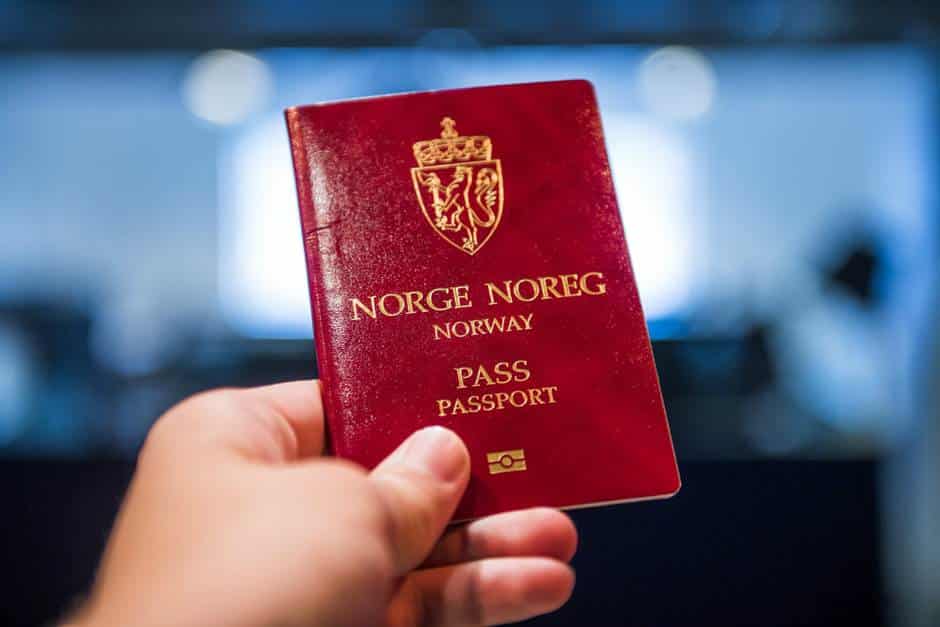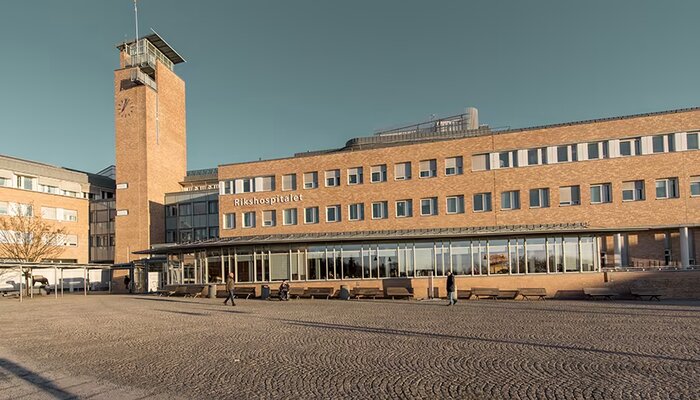An Expat Guide on How to Retire in Norway
If you are looking to invest as an expat or high-net-worth individual, which is what I specialize in, you can email me (advice@adamfayed.com) or WhatsApp (+44-7393-450-837).
Introduction
We all picture different retirement lifestyles. To retire in Norway is something you might want to give some thought to if your top priority is a high standard of living in one of the wealthiest countries in the world.
Is There a Visa to Retire in Norway?
In contrast to certain countries in Europe, Norway does not offer a retirement permission or visa of any kind to its citizens. Therefore, in order to reside and retire in Norway with no work visa, you must have a permanent abode and sufficient funds to support yourself.
While the country has no retirement visa, Norway offers citizenship and visas for permanent residence to foreign nationals. In addition to meeting a number of other requirements, a person seeking permanent residency must demonstrate that they have a sufficient command of the Norwegian language and must have passed any applicable examinations.
Immigration Process
All applications for residence permits in Norway are processed by the Norwegian Directorate of Immigration, a government agency also known as UDI. Although there are many distinct sorts of residence permits for expats, the application process is mostly determined by the nation of citizenship of the immigrant.
Even though Norway is not a member of the European Union (EU), applicants who are citizens of a nation that is a member of the EU or the European Economic Area (EEA) have a substantially easier time obtaining citizenship in Norway.
Such is the case because Norway is obligated to comply with the freedom of movement requirements of the EU and EEA as a result of the country’s membership in the European Free Trade Association (EFTA).
Those who have lived in Norway for five years and have registered themselves as residents under the EU/EEA system are eligible to apply for the permanent right to dwell in the country if they so want.
As a consequence of the United Kingdom’s decision to leave the European Union and the European Economic Area, citizens of the country will no longer be able to legally register to vote in Norway. British citizens are now required to behave in accordance with the standards set for citizens of other countries.

Retire in Norway from Other Nations
Those with Norwegian ancestry are likely to be disappointed to learn that Norway does not provide residence permits on the basis of family connections unless an immediate family is already residing in the country.
This document, which is referred to as a family immigration permit, is intended to make it possible for an individual’s partner to join them in Norway, say, if that individual is employed there. This process is also available to the partners of Norwegian citizens, but there are certain requirements that must be met.
Permit to work are the most popular route for non-EU and EEA residents to come to and eventually retire in Norway. Nevertheless, prior to applying for a work permit, non-EU and EEA citizens must first obtain employment. In general, the job offer must be in the skilled worker category, which necessitates a university degree or corresponding skill training.
Applicants who believe they meet the requirements for a skilled worker work permit have the opportunity to submit an application for a job-seeker visa valid for a period of a half year; however, the UDI states that such visas are only issued in rare circumstances.
There are also particular categories of work permits for certain occupations, such as those of mariners, employees in offshore oil and gas fields, sportsmen and coaches in various sports, ethnic cooks, and teachers of religious tenets.
It is also conceivable to relocate to Norway with the intention of starting a business there, but doing so will be much more challenging for individuals who are not nationals of the EU or EEA. It is possible to obtain a work permit that allows for self-employment, but you will be required to give evidence of the revenue you anticipate earning, especially during your business’ first year of operation.
Permanent resident permits are made available to citizens of countries outside of the EU and EEA who have resided in Norway for three years minimum and can demonstrate a specific degree of fluency in the Norwegian language.
Students who have submitted their applications and been accepted to a full-time program at a university, university college, or university in Norway are eligible to apply for study permits. Applicants who are granted a study permit are granted the right to work a maximum of 20 hours per week at a part-time job in order to assist them in meeting their financial obligations.
If You’re From Europe
Registration is the only thing that is necessary of citizens of countries that are members of the EU or the EEA because they have the right to reside and work in Norway. However, in order to qualify for such registration, you need to have a legitimate cause to remain in the country.
Employment, self-employment, being sent to Norway by a foreign company in the capacity of a worker, or being enrolled as a full-time student are all examples of valid causes. People who are self-sufficient in terms of their financial resources are also eligible to register, but they will be required to have health insurance.
Retire in Norway: The Healthcare System
Norway Citizens and permanent residents of Norway are not required to pay any money to access Norway’s universal healthcare system. Residents and citizens can easily receive a health card by placing an order for one through the government’s website.
In order to order a card, they will be required to provide their Norwegian identification number so as to demonstrate that they are either citizens of Norway or have the legal right to live in the country permanently.
Every resident and citizen is required to pay taxes, which are used to finance the National Insurance Scheme and cover the costs of providing healthcare. In order to be qualified for a waiver card, an annual deductible must be met by each adult.
There is no distinction made about a person’s social or economic standing in order to determine who has access to high-quality medical treatment in Norway. Local governments are responsible for the organization of primary, preventative, and nursing care, as well as the planning and execution of projects and campaigns designed to encourage individuals to lead healthier lifestyles.

Retire in Norway: Taxes
Before you retire in Norway, take note that the country has relatively high tax rates. People’s contributions to the government in the form of taxation help fund things like national healthcare and infrastructure, among other things. The income of retirees who reside in Norway is only subject to taxation if it is earned within Norway; this is in contrast to the taxation of citizens of Norway, who are required to pay taxes on any income earned elsewhere in the world.
Therefore, if you generate an income when you retire in Norway, you will be subject to an income tax rate of 22%, according to PricewaterhouseCoopers (PwC). There is also a progressive tax bracket in effect depending on the personal income generated, with the lowest being 1.7% for income of between 190,350 kroner and 267,900 kroner ($19,358 to $27,245) and the highest at 17.4% for income in excess of 2 million kroner, PwC said.
Do You Pay Tax on Your Norwegian Pension Received Overseas?
If you reside and retire in Norway and get pension from yet another Nordic country, or vice versa, you can check the legislation surrounding tax on the Nordic tax portal, which is known as Nordisk eTax.
Is it Safe to Retire in Norway?
Norway is consistently ranked as one of the top nations in terms of safety and security. In fact, it ranks within the top 20 safest countries in the world based on the Global Peace Index report in 2022 from the Institute for Economics and Peace.
Norway, along with countries like Belgium, Denmark, Germany, Italy, and Spain are expected in the next years to add more to the funds they allot for defense, which is in line with the minimum endorsed by intergovernmental organization North Atlantic Treaty Organization (NATO), according to the report.
Even crimes against property in Norway are uncommon, which may be one reason why many individuals have the tendency to leave their bicycles outdoors unlocked. So yes, it is really safe to retire in Norway.
Do You Have Pension Access When You Retire in Norway?
The retirement system in Norway is comprised of three distinct components: a retirement pension provided by the National Insurance Scheme, an occupational pension or contractual early retirement pension from companies, and individual retirement savings.
In order to get a better understanding of how much money you may expect to receive from the pension system in the future, it is essential for you to become knowledgeable about all of the many levels in the system.
Government agency Norwegian Labour and Welfare Administration, or NAV, is in charge of administering retirement pensions in Norway. If you have worked or resided in Norway for five years minimum after becoming 16, you are eligible for a retirement pension from Norway’s National Insurance Scheme. This entitlement is contingent on your having lived in Norway for at least five years after turning 16.
Due to the fact that Norway is a signatory to a number of national insurance agreements, the prerequisite can be satisfied by combining periods of national insurance from other countries with those from Norway. If you want to be eligible for a retirement pension from Norway, the general rule is that you have to be a participant of the National Insurance Scheme until you reach the age of retirement.
However, there are various exemptions to this rule. There is a possibility that you will be eligible for a basic pension from Norway, even if you have not participated in the labor force during your lifetime.
Those who are self-employed, students, or who work across borders are not afforded any additional protections under the law. A retirement pension is something that you are eligible for if you have resided in Norway for at least five years and have participated in the National Insurance Scheme throughout that time.
If you have had pension contributions on top of this period, you will receive a retirement pension that is higher based on the income you have had during your working years. After that, the pension is computed using the exact same methodology as that used for employees.
Reforms to the country’s pension system were put into effect in 2011 after they were introduced in Norway. Following the implementation of the reform, the amount of retirement pension that individuals of varying ages are entitled to receive from the National Insurance Scheme fluctuates.
Make sure you get in touch with NAV so they can tell you what rules apply to you. The amount of money you will receive as a pension after you retire is determined by two factors: the number of years you were employed and the amount of money you earned during those years.
You are entitled to a pension from the National Insurance Scheme, and the pension is terminated when you pass away. Because of this, the pension cannot be passed down from generation to generation.
If you have been a resident of another Nordic country or have worked there during the time that you have been a participant of the national insurance scheme in that country, you may be eligible to receive a retirement pension from that country.
The amount of your pensionable income and the length of time that you have been party to the national insurance scheme will determine whether or not you will receive a pension. A pension that was earned in another nation is paid by the government of the territory where the income was generated.
When do you become eligible for a pension in Norway?
There is a mandatory retirement age of 67 years old in the country. You are the only one who can decide when and how you want to begin collecting your retirement pension, as well as the extent to which you want to continue working concurrently. You need to have accumulated enough pension credits by the time you are 67 years old in order to begin collecting your retirement benefits as a pensioner.
The procedure for submitting an application for a Norwegian retirement pension is as follows.
For Residents
If you are a Norwegian resident, the National Pension Service is the agency to contact regarding your pension application. The application for the pension can be submitted online through the website referred to as Din pensjon, which is the quickest and most convenient method. After that, an answer will be provided to you within the next few minutes.
You will be informed if NAV is unable to automatically process your application in the event that it does not meet certain criteria. You also have the option to apply for a pension via printed form; however, this method can take a little bit more time.
You are encouraged to get in touch with NAV if you worked in one of the other Nordic countries and brought pension money with you from that nation. In the event that you indicate that you have spent time outside of the country on the application form, NAV will get in touch with you.
For Residents of Other Nordic Territories
If you reside in another Nordic nation and are certain or believe that you are eligible for a pension from Norway, you are the one who is responsible for initiating the application process to receive the pension.
Get in touch with the organization responsible for administering pensions in the nation in which you live. You should submit your application in a timely manner because the review procedure can take some time for certain kinds of applications.
Is it possible to transfer a pension From Norway to another Nordic nation?
In most cases, you will be able to take your pension from Norway with you if you relocate from the country to another Nordic or European Economic Area nation. However, there are several categories of retirees whose pension income might be reduced if they relocate. When they do so, they are considered to be mobile.
If you reside outside of Norway for an extended period of time relative to the time you spend there, your membership in the Norwegian national insurance system will be terminated. This could, for instance, impact your right to receive medical care from a certain provider.
Find out from NAV what the regulations are that pertain to your situation.

Living and Housing Costs When You Retire in Norway
How much do you need to afford retiring in Norway?
Global cost of living data aggregator Numbeo pegged the overall monthly cost of living in Norway for one person to approach 11,496 kroner (1,172 dollars) on average, excluding rent. This figure is accurate as of the time this article was written.
On the other side, the average monthly expenditure for a family of four, excluding the cost of housing, might be approximately 41,225 Norwegian Kroner.
If you have a pension or a moderate salary that enables you to have a larger monthly budget, you may be able to anticipate living in Norway in a more comfortable manner than you would otherwise.
In order to maintain the same standard of life that you could achieve in New York with 9,100 dollars, you would need approximately 5,966 dollars in the capital city of Norway, Oslo.
It is anticipated that a supper for two at a restaurant with a lower price point in Norway will cost 200 kroner, while a meal for two at a restaurant with a price point in the middle of the range can cost up to 900 kroner.
The average monthly rent for an apartment with one bedroom in Norway’s city center is approximately 10,702 kroner, whereas the average rent for an apartment with one bedroom outside of that area is approximately 8,721 kroner.
The average cost of purchasing an apartment in the city center of Norway can reach approximately 64,441 kroner per square meter, while the average cost of purchasing an apartment outside of the city center can reach approximately 45,650 kroner per square meter.
Retire in Norway: The Bottom Line
Norway is a stunning country that is characterized by its abundance of picturesque scenery and quaint little villages. It is definitely worthwhile to live there, despite the fact that obtaining permanent resident status there might be difficult at times, due to the high quality of the medical care and the vast variety of activities that are on offer.
Ultimately, you should give careful consideration to your unique requirements and preferences when selecting a location to make your new home. It is important to consider not only the benefits but also the drawbacks a country offers.
Make sure to have a conversation with your financial adviser as well if you would like to create a strategy for your retirement that includes investments made in other countries. They will be able to assist you in making proper plans and will put you in touch with individuals who will make your transfer to the new country simpler.
Pained by financial indecision? Want to invest with Adam?

Adam is an internationally recognised author on financial matters with over 830million answer views on Quora, a widely sold book on Amazon, and a contributor on Forbes.




If I’ve misunderstood about your willingness to answer questions like this for people who want to move to Norway, please forgive the long-winded letter.
This is the situation I have questions about:
A family of Americans (2 retired siblings, 1 with 2 adult children and 2 young grandchildren) has enough money to pay cash for 2 houses and still have approximately US$3-3.5 million in savings, retirement funds and a trust for the 2 children. The retired siblings also get a combined total of approximately $30,000/year in US Social Security and military retirement. The thought is that if they live somewhat frugally, none of the current adults would have to work in Norway.
I’m having trouble finding answers to these questions:
Would this family pay tax in Norway on interest income earned from their savings? Would they pay tax on the money they already have, too, every year? Would they pay tax on the Social Security and/or US military retirement? Would the answers depend on where the money is? Would they be able to keep some money in the USA, or would they have to invest/bank all of it in Norway if they live there? Would all 4 adults have to be fluent in Norwegian before moving there? Would the children have to be fluent before starting school?
Thank you very much for your time. This family is hoping to move to Norway as soon as possible…and becoming your client(s).
Hey Katie. I will email you.